Our pets are a wonderful source of affection, companionship, entertainment, and stress relief, but they can also make us worry. Despite the many steps we take and the measures we put in place to make sure we are giving our cats the very best care, there will always be illnesses that are completely out of our control, and cancer continues to be one of them.
There are several types of cancer that can affect our feline companions, and basal cell tumors are one of the most common skin tumors in cats. The good news is that more than 90% of these are benign.
Let’s take a closer look at basal cell tumors in cats, including how to recognize them and how they are treated.

What Is a Basal Cell Tumor?
A tumor is an abnormal growth of cells, with the type of tumor determined by the type of cells involved. Why tumors form is still not fully understood, but once they begin, the abnormal cells continue to grow and replicate. Some are limited to a single, contained area, also known as benign tumors. Meanwhile, malignant tumors (cancer) invade surrounding tissues and structures and may spread (metastasize) to different parts of the body through the blood or lymphatic system.
Basal cell tumors form from the basal cell layer of the epidermis. In most cases, these tumors are benign and do not grow beyond the basal cell layer in the area where they started. In approximately 10% of cases, the tumor will grow and replicate beyond the basal cell layer and into the surrounding tissues. This is known as malignant basal cell carcinoma (BCC).

Where Are the Signs of a Basal Cell Tumor?
Although basal cell tumors can grow anywhere on the skin, they are most common on the head, neck, and shoulders. They can range from 0.4 inches to over 4 inches in diameter and are usually firm, raised, hairless, or may develop from a stalk.
BCC lesions are not usually raised but appear as irritated, ulcerated lesions on the head, neck, or legs. Although BCCs will grow and spread into the surrounding skin, they do not tend to metastasize.
If you are concerned about the health and well-being of your pet, we recommend getting in touch with a vet for guidance.
If you need to speak with a vet but can't get to one, head over to PangoVet. It's an online service where you can talk to a vet online and get the advice you need for your pet — all at an affordable price!

What Causes Basal Cell Tumors?
We do not fully understand how or why basal cell tumors form. There may be several predisposing factors, including viral infections, age, genetics, sun exposure, and breed. Long and medium-haired cats, such as Persians, Himalayan, and Angoras, have a higher incidence of basal cell tumors compared with other breeds.
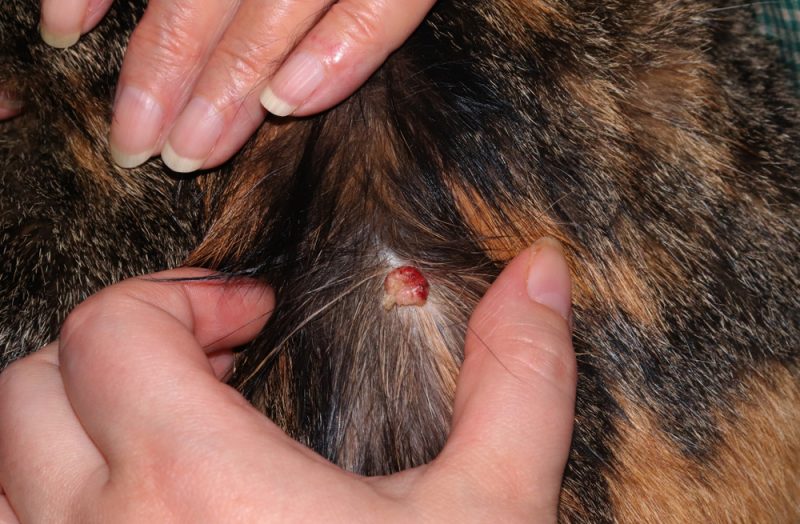
How Are Basal Cell Tumors Diagnosed?
Depending on the size and location of the growth, a diagnosis may be made using:
- Fine-needle aspirate: A small number of cells are taken from the mass using a needle and examined under a microscope.
- Incisional biopsy: A section of the tumor is removed using a scalpel or biopsy punch, and sent for histopathological examination (examining thin sections of tissue under a microscope).
- Excisional biopsy: The entire tumor is removed surgically and sent for histopathological examination.
If the tumor is found to be a malignant BCC, your vet may recommend further investigations, such as blood tests, imaging, and lymph node biopsies, to check whether the tumor has spread.
How Is a Basal Cell Tumor Treated?
Small, benign basal cell tumors may be monitored and only removed if they undergo rapid growth or changes in appearance. Cryosurgery may be used to remove very small tumors.
Surgical removal is the treatment of choice for malignant basal cell carcinomas. If the BCC is in a location where surgical removal is not possible or likely to be successful, radiation therapy or chemotherapy can be used.
Basal cell carcinomas have a high treatment success rate.

Frequently Asked Questions
What Is the Prognosis for a Cat With Basal Cell Tumor or Carcinoma?
For cats with basal cell tumors, the prognosis is excellent. Even those with malignant BCC have a very good prognosis due to the low rate of malignancy of this type of tumor. However, left untreated, they can cause pain, suffering, and possibly spread, so removal of BCCs is always recommended.
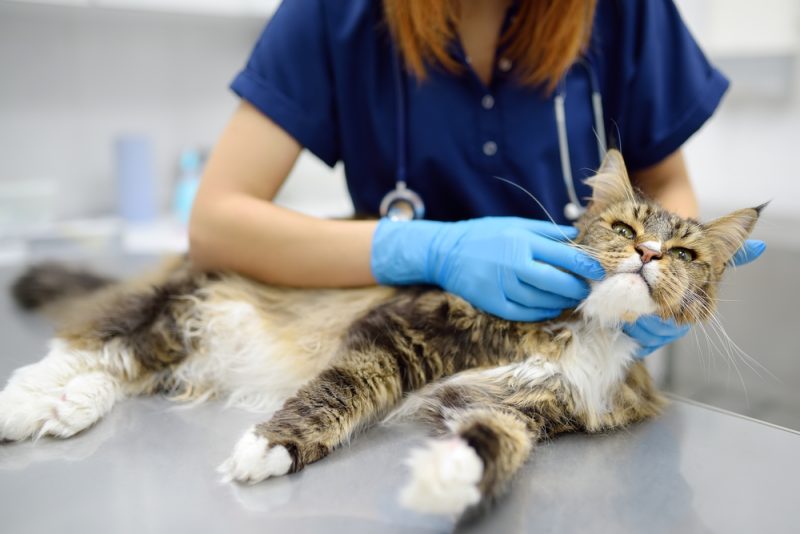
What’s the Difference Between a Basal Cell Carcinoma and a Squamous Cell Carcinoma?
As the name suggests, squamous cell carcinoma (SCC) originates from the squamous layer of the epidermis, which is thicker and more superficial than the basal layer. Unlike BCC, SCC is an aggressive, invasive, and sometimes metastatic tumor. They commonly occur on the face and ears, particularly in white or light-pigmented skin. They are also a common oral tumor in cats. There is no recognized benign form of SCC in cats.
What Should I Do if My Cat Makes Their Basal Cell Tumor Bleed?
If your cat has a benign basal cell tumor, they may occasionally knock or scratch the lesion and make it bleed. While this is no immediate cause for concern, if this happens repeatedly, it can increase their risk of infection, and removal of the mass should be considered.

Conclusion
Basal cell tumors are the common skin tumors of cats and dogs, with less than 10% being malignant. In the case of basal cell carcinoma, early detection and treatment have a high success rate, so it is important to have any new lump, bump, or growth checked by your vet. The smaller the growth, the easier it is to remove.
Featured Image Credit: Catster
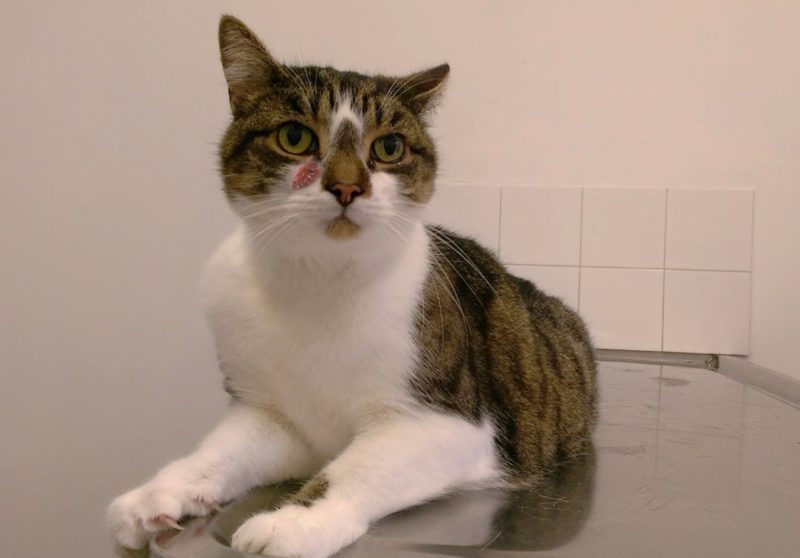



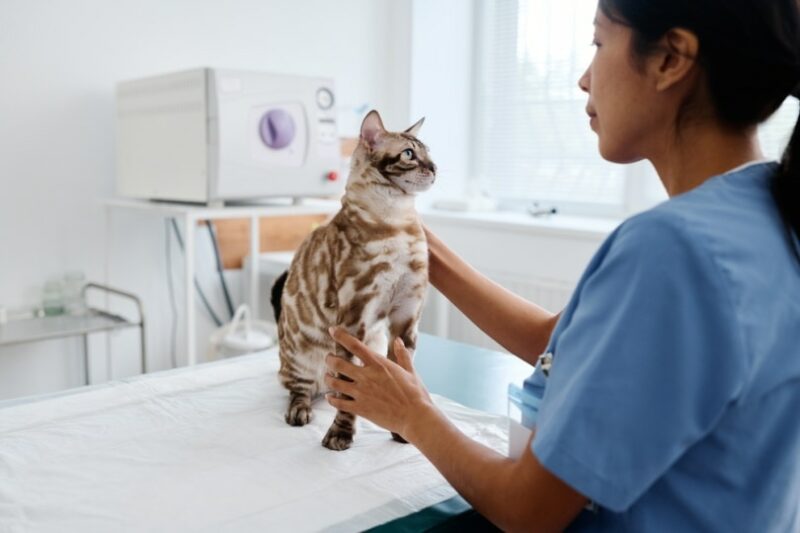






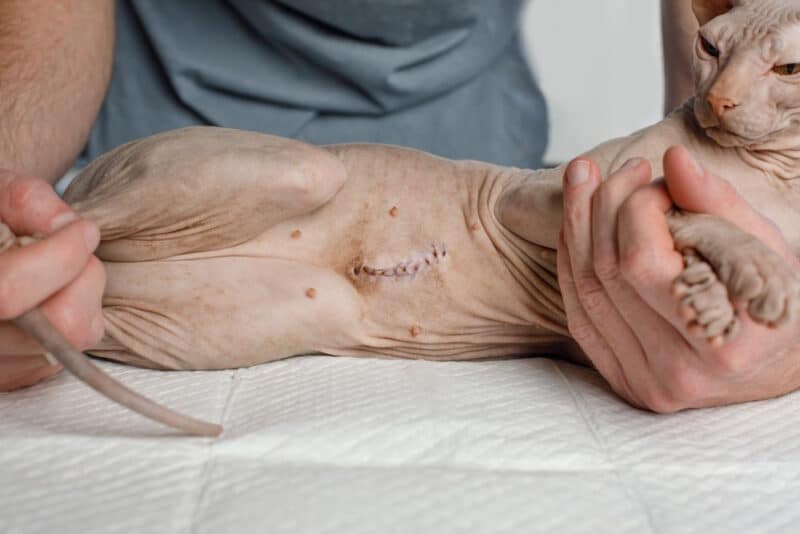


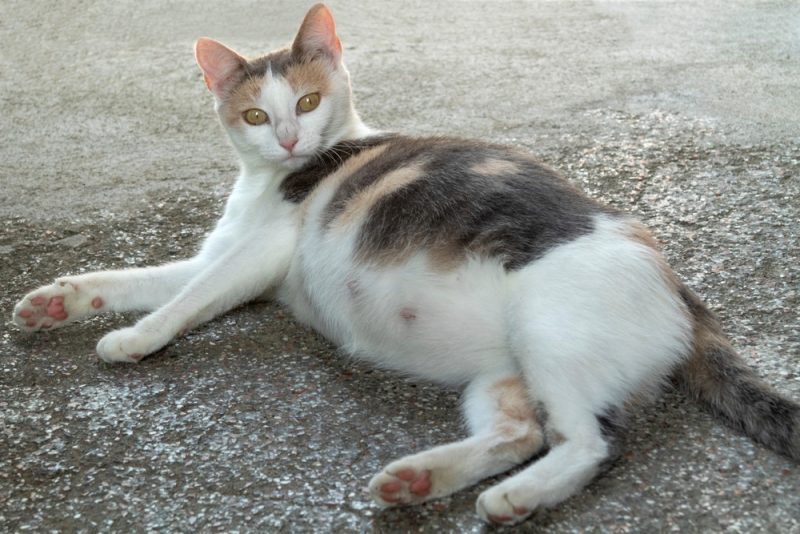

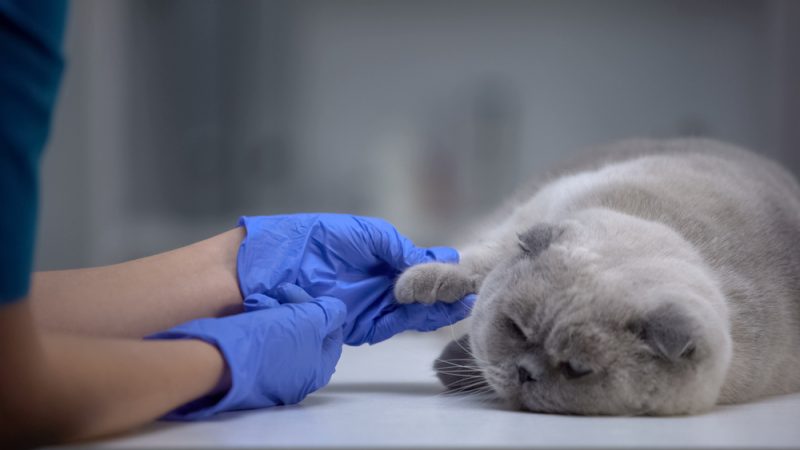


2 Responses
I am almost 91 years old and can’t care for my 12 year old cat. There is no one to give him too. Should I put him to sleep?
Hi Peggy, thanks for reading us. If your cat is healthy there is no need to put him to sleep. Please try contacting a humane society or animal shelter in your area, they can help you re-home your cat.